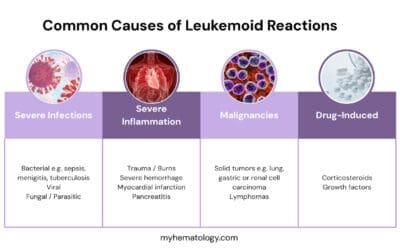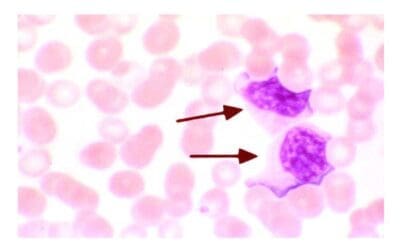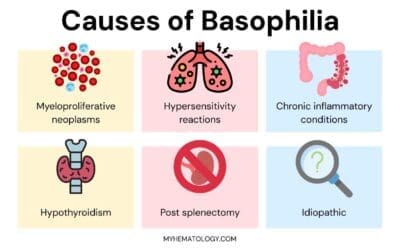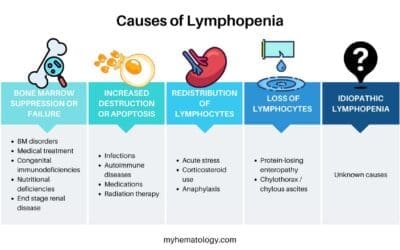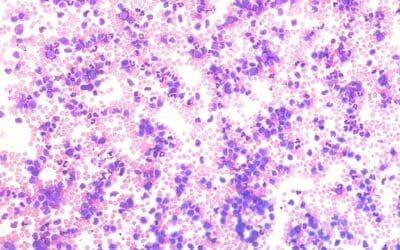Acute Lymphoblastic Leukemia (ALL) is a cancer of immature white blood cells. Learn its cause, symptoms, and modern treatment, including CAR T-cell therapy.
Chediak-Higashi Syndrome
Chediak-Higashi syndrome (CHS) is a rare genetic disorder characterized by oculocutaneous albinism, immune deficiency, and neurological decline.
Diffuse Large B-Cell Lymphoma (DLBCL)
Learn about Diffuse Large B-Cell Lymphoma (DLBCL) and its diagnosis, treatment with R-CHOP, and management of relapsed disease.

Smoldering Multiple Myeloma (SMM)
Smoldering Multiple Myeloma (SMM) is an asymptomatic precursor to MM, defined by high clonal plasma cell burden and M-protein without MDEs. Risk stratification is key.
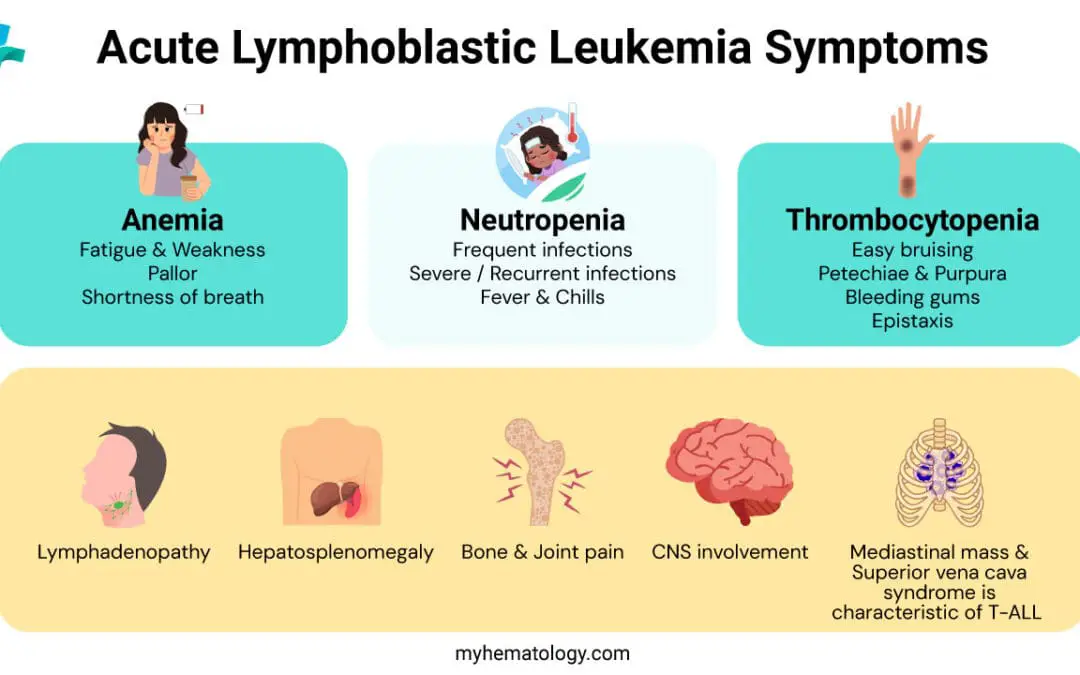
Acute Lymphoblastic Leukemia or ALL
Acute Lymphoblastic Leukemia (ALL) is a cancer of immature white blood cells. Learn its cause, symptoms, and modern treatment, including CAR T-cell therapy.

Diffuse Large B-Cell Lymphoma (DLBCL)
Learn about Diffuse Large B-Cell Lymphoma (DLBCL) and its diagnosis, treatment with R-CHOP, and management of relapsed disease.
Leukemoid Reaction
Leukemoid reaction is a benign, reactive process with elevated LAP & no Philadelphia chromosome, unlike malignant CML.
Causes of Atypical Lymphocytes (Reactive Lymphocytes)
Atypical lymphocytes are activated immune cells, often seen in infections. Their unique look aids diagnosis, but distinguishing it from cancer is important.
Hypersensitivity Reactions: Causes and Mechanisms
Hypersensitivity is an exaggerated, undesirable immune response to an antigen, causing tissue damage. It encompasses four types: IgE-mediated (allergies), cytotoxic, immune complex, and delayed cell-mediated reactions.
Basophilia (High Basophils)
Basophilia is when basophil count are elevated. It often signals underlying issues like MPNs, allergies, or inflammation.
Lymphopenia or Low Lymphocytes
Lymphopenia is a low lymphocyte count, weakening immunity. It increases infection risk and flags underlying issues like cancer or severe illness.
Monocytosis (High Monocytes)
Monocytosis: Elevated monocytes signal underlying health issues. Learn causes (infections, cancers), symptoms, diagnosis, and management.

